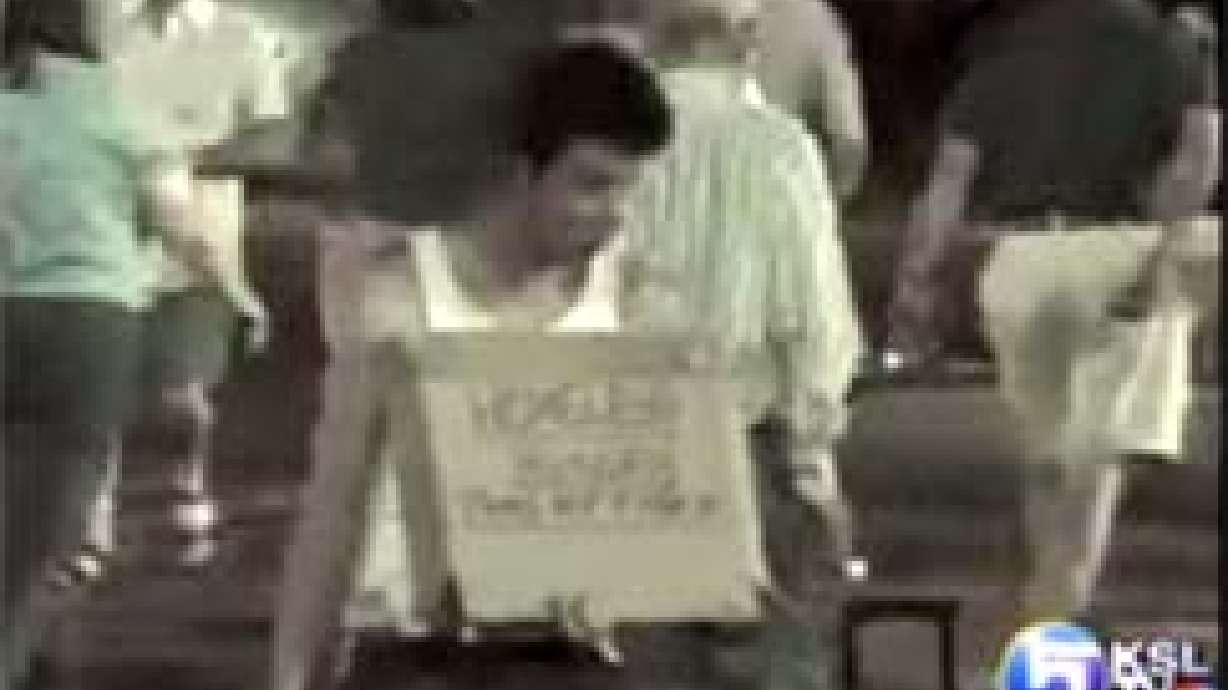Estimated read time: 3-4 minutes
This archived news story is available only for your personal, non-commercial use. Information in the story may be outdated or superseded by additional information. Reading or replaying the story in its archived form does not constitute a republication of the story.
Samantha Hayes Reporting It's the time of year when we think about those who are less fortunate than most of us, and we offer them assistance.
Tonight we will introduce you to a population who we live among, but don't often pay attention to. They are children who live on their own, on the streets, homeless. It's a surprisingly large group of kids known as "throw-aways."
We started this project a little more than a year ago when social workers told us the problem of homeless youth is growing in Utah. They have been called runaways, druggies, gutter-punks, lazy. They are kids, who may look a lot like your own.
He is the bum outside the ball park. She is the beggar at the library.
"I don't look like a bum, but I am a bum. It's kind of horrible."

They sleep in squalor.
Everybody sees them. Nobody looks for them.
"It's like having a family. A dirty little family."
A loosely connected family. Homeless teenagers are starving, scraping, and barely surviving in a world where they manage to exist, but never really live.
"I don't have an appetite. I can't eat because I'm not used to eating."

This young woman's mother passed away. Her father is in prison. She is one of the estimated 500 or more homeless teenagers on the streets of Salt Lake City.
Nicole Campolucci knows their names. Their stories. She runs the Volunteers of America Youth Outreach Center.
Nicole Campolucci/ Volunteers of America: "But to me the saddest part is often, eight to nine times out of ten, they don't know any different. That's what's been happening their entire lives."
For Chris Goudge, it started in eighth grade, living in a van while his father tried to find work.
Chris Goudge (digging in dumpster) : "Dig hard enough, I'll find a taquito. And here they are."

He knows this dumpster on this day might have something he wants to eat. As long as the owner of the convenience store doesn't run him off.
He worries about food poisoning, so he microwaves his meal in the convenience store.
Chris Goudge: "If I don't, I'll get hepatitis A."
There is a greater risk of disease, and certainly of depression. He knows when people are watching him. He knows what they are thinking.
Chris Goudge: "Just feel ashamed when kids see me digging for food. I just don't think they should see it."
They are, on average, 19 to 20 years old. They all have reasons why they are here. Many have something in common. They say they were thrown out of their families, in disgrace, because they are gay.
Nicole Campolucci/ Volunteers of America: "Our stat is 30 percent of homeless youth cite gay as being their primary reason for being homeless."
Others are abused or age out of the foster care system. They find each other in public places, like parks and libraries.
Victoria: "It's just family. It's home for me."
But finding a home, specifically a place to sleep, is like everything else-- a short term goal. It's a night-by-night search for safety.
Victoria: "I've slept in the back over there. I've slept in a parking garage over there, slept in alleyways, people's lawns, baseball fields."

And Squats. Another word for well-known abandoned houses that are boarded up. But a peek inside shows just how desperate many of them are to find a place to sleep.
A search Chris Goudge is on this summer night, his suitcase in tow. He'll stop at the ball park and hope someone gives him food before he slips back into darkness. He made it. One more day.
Some homeless youth break the cycle. Campolucci estimates 15 to 20 percent in Salt Lake City, which is actually high. She believes better access to mental health and a youth shelter would produce more success stories.
The youth drop-off center will be hosting an open house later this month. If you want more information on that, check the link in the box above.








